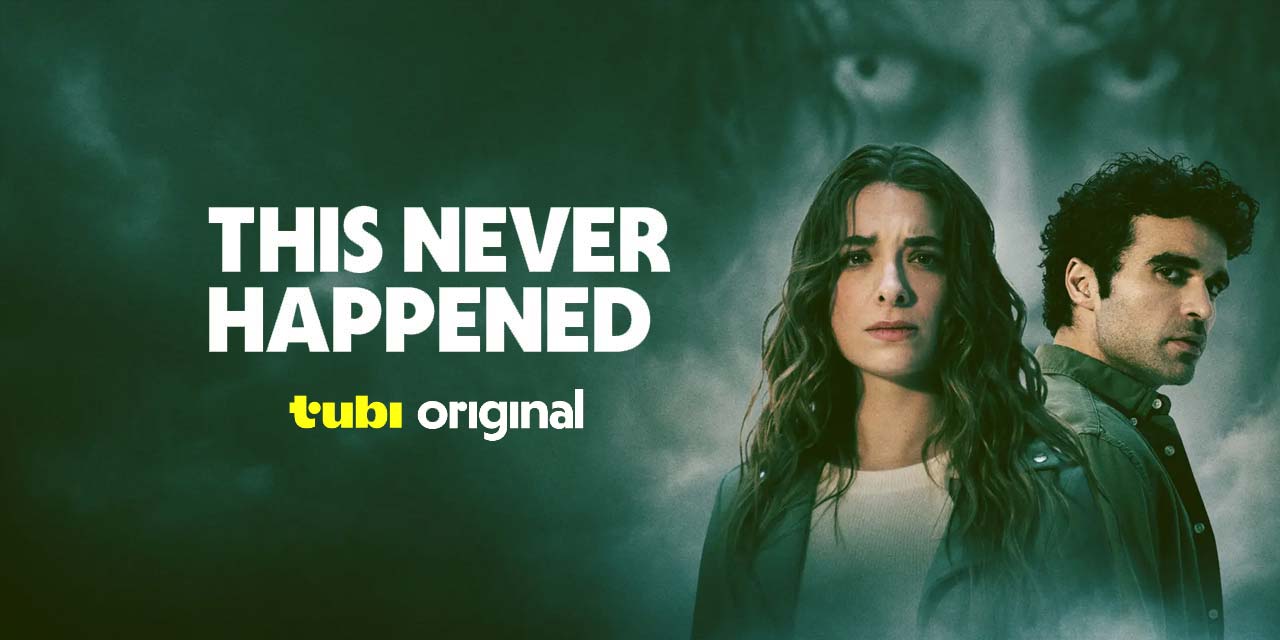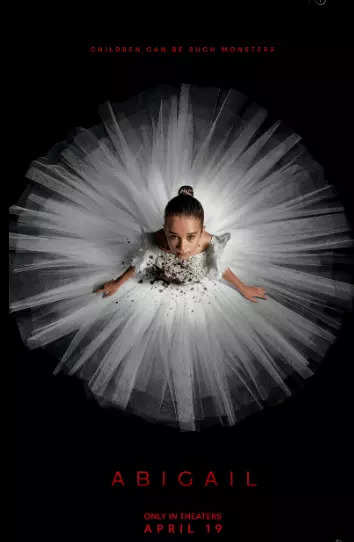Movie Reviews
Ahimsa Review – Himsa For Audience

BOTTOM LINE
Himsa For Audience
OUR RATING
1.75/5
CENSOR
U/A, 2h 42m
 What Is the Film About?
What Is the Film About?
Raghu (Daggubati Abhiram) is a kind-hearted and ordinary guy whose love of life is Ahalya. She is fierce and advocates violence, whereas Raghu is the exact opposite.
What happens when Raghu faces is pushed to the extreme by the system after a tragic incident shatters his life is the movie’s plot. Did it change his basic nature is the undercurrent theme.
Performances
Abhiram Daggubati makes his acting debut with Ahimsa. He is moulded as a typical Teja hero in the movie. The character, too, deals with similar emotions. From a soft-spoken guy to a fierce personality, the change forms the arc given to him.
Abhiram has surface-level looks to fit the ‘typical’ director Teja hero personality. There is a fear plastered on his face, and it is exploited to the maximum by Teja. Abhiram is seen mostly with the expression, and then there are additional fear and aggression when necessary. The problem is that other expressions are dominated by the pertinent one. For a debutant, he is okay, but Teja has managed to extract better in the past with his heroes, debut or otherwise.
Geethika, the heroine, tries hard but fails. Her tole is more expressive than the hero, and she goes way overboard with it. The characterisation, particularly the dialogues and actions, don’t help her cause. In the emotional scenes, she is fine, but again they are overdone. In the end, it turns out to be a forgettable fare.
 Analysis
Analysis
Teja, the veteran director of blockbusters like Nuvvu Nenu and Jayam, directs Ahimsa. At a basic characterisation level, Ahimsa is similar to his past flicks, but here the core theme is related to violence and non-violence, and it is dealt with through the backdrop of a relatable topic and victimhood.
The movie opens with intrigue, but it soon digresses into mundaneness with the romantic track. It wouldn’t be a problem normally, but the over-the-top execution, the acting and the dialogues make one cringe in discomfort. It instantly takes us back to the Nijam days from Teja. Who can forget the ‘Eenadu’ and ‘Andhra Jyothi’ comedy track? Well, we have a companion here.
It would still have been fine if the cringe and over-the-topness were restricted to comedy or romance, but that is not the case here. Every new character that arrives behaves in the same way with loud and over-dramatised action.
Amidst all the verbal mayhem torturing the senses, there is a core courtroom drama surrounding an issue. The content is contemporary, and we have seen it getting execution in a far gripping way in grounded settings and performances. Here everything is overblown and excessively done. The direction also screams outdatedness. Still, Ahimsa manages to hold the attention briefly.
By the time the courtroom drama ends, the engaging part of the movie also ends. The next direction the narrative takes is where Ahimsa loses the whole plot.
For starters, the time taken to reach the interval portions itself is overstretched. By the time the interval arrives, one gets a feeling of watching an entire movie. But the real ‘himsa’ is only beginning at the time.
The second half offers nothing novel. It is all about the hero and heroine escaping from three different sets of gangs who are after their lives. The ‘Lomdi’ gang among the three are the definition of excess in a script that leads to assault on the senses.
Just when one thinks the movie might end, there is another half an hour with a song in the mix. The final stretch towards the completion is sheer drivel with so much unnecessary violence. Even until the last minute, the director doesn’t waste time in inducing the pain.
Overall, Ahimsa has two key issues which would have made for an outdated but engaging narrative. However, the outdated and over-the-top execution and mind-numbing second half kill any chances. If you are a fan of the director, skip the movie and save yourself from the pain.
 Performances by Others Actors
Performances by Others Actors
The movie is filled with actors. Everyone goes overboard in their performance, starting from Sadha. She is still fine, considering the impact of the role in the narrative. But, others like Rajat Bedi are highly irritating. Manoj Tiger playing the scheming, devious lawyer is fun, but in a bad way. The rest of the actors, like Ravi Kale, Devi Prasad, Kamal Kamaraju etc., fail to register.
 Music and Other Departments?
Music and Other Departments?
RP Patnaik works as music director for Teja after a long gap. However, the combo fails to deliver any worthwhile song, although a couple does sound nice on the ear. The background score is effective, even though loud. Sameer Reddy’s cinematography is okay, capturing the rustic and raw settings of the village and forest. The editing is okay. The writing comes with a generous mix of double entendre. A couple of lines register, but overall it’s nothing more than ordinary.
Highlights?
Basic Theme (Violence Vs Non-Violence)
Brief courtroom Drama Stretch
BGM
Drawbacks?
Weak Story
Second Half
Outdated OTT Execution
 Did I Enjoy It?
Did I Enjoy It?
No
Will You Recommend It?
No
Ahimsa Movie Review by Mirchi9

Movie Reviews
This Never Happened (2024) – Review | Tubi Horror Movie | Heaven of Horror

An intriguing premise
When I’m about to watch a supernatural horror movie with a plot that revolves around a home, where a man and his friends used to hang out, then my femicide-senses are immediately tingling.
We meet Emily (María José De La Cruz) who is having terrible nightmares. She’s also medicated, so we’re made aware that there might be some mental health challenges for her. The story begins with her going from the US to Mexico City with her boyfriend, Mateo (Javier Dulzaides).
Mateo’s father recently passed away, so they’re going to his funeral, where Emily will also meet Mateo’s mother and his friends for the first time. Not the best way to meet someone, but Mateo insists it’s as good a time as any.
Before I go any further, let me just say that Mateo’s mother, Melora, was portrayed by Andrea Noli. She looked like a younger Betty Buckley and was just as sharp and funny. The most kitsch and entertaining character in This Never Happened.
Not that the rest of the cast wasn’t good. They were, for the most part. Especially María José De La Cruz as Emily was good. Andrea Noli was simply a true scene-stealer!
Anyway, as soon as Emily arrives at the house (which is more like a high-tech mansion), she starts seeing things. Things as in a woman, who seems to be an angry and violent spirit. Of course, this comes as absolutely no surprise, when we see how Mateo’s friends are entitled rich kids.
Movie Reviews
Civil War

⭐️ ⭐️ ⭐️ ⭐️ 1/2 (out of 5)
Alex Garland (Ex Machina, Annihilation) may not be a name as familiar to many. Yet, in his film making career, he has managed to write and direct some of the most creative works in cinemas. His vision of a dystopian future combines brilliance with an unnerving component that has garnered characters and stories that continue to capture the imagination. His latest project taps into the potential division within the United States, leading to a civil war between the states and the federal government.
Garland embeds the audience into the centre of the action as it unfolds with a team of journalists trying to get the story affecting the country out to the world. Photojournalist Lee Smith (Kirsten Dunst) leads a small team that foresees the downfall of the current administration and strives to get to Washington, DC, before the Western forces. Yet, the journey is marked by precarious situations in every community as anarchy and confusion have taken over the country since law enforcement has been disbanded. Their press credentials allow the team to move through each community and even provide them access to local battle scenes that occur along the way. As Lee tries to protect and mentor the aspiring photographer, Jessie (Cailee Spaeny), her Reuter’s partner, Joel (Wagner Moura), attempts to navigate the backroads of America to get them to the nation’s capital before it falls.
From the opening scene, Garland’s story announces the cautionary messaging of how close the United States is to destroying itself from within its own borders. Yet, the masterful manner that this film maker has gone with this storyline is how he manages to do this without taking clear sides on the topics affecting the country. He doesn’t pit race, social class or political affiliations against one another. Instead, the writer/director shows how horrifically this war would impact everyone, even those who choose to ignore what is happening in their neighbourhood. As a neutral observer, he gives the viewer a perspective of judging each community and situation without making commentary that would steer the interpretation of each scenario as it unfolds. As these journalists travel between communities, military actions and personal challenges, the audience gets a front-row seat to the horrors of war that should lead to reconciliation within this mighty nation.
Americans will feel mixed emotions as the movie rolls forward, which will cause tensions between patriotism, justice and what it is to be an American. What is most unnerving is the plausibility of all of this unfolding and how unnerving this possible reality impacts the emotional state of a nation. Kirsten Dunst, Wagner Moura, Stephen McKinley and Cailee Spaeny make a perfect social experiment that represents the majority of the population and how each sees the downfall of America in a different way. Outside of some unlikely scenarios and equipment usage, there is little to discredit Alex Garland’s film. Every scene has a purpose; each character serves their role convincingly, and the story allows the audience to determine what they must do with what unfolds before them. Civil War proves to be a warning for countries and people that should lead to conversations of unification, forgiveness, identity, and reconciliation.
Reel Dialogue: Where do we find our identity?
One of the most profound moments in the film developed into one of the most ghastly as the journalists were asked, ‘What kind of American are you?’ This is a question that strikes right at the heart of personal identity. The answer to ‘Who are you?’ has plagued philosophers, theologians and university professors for centuries. The world of Civil War continues the discussion on identity by evaluating what it takes to determine who you are in this world.
Remember that this is a work of fiction. Still, these questions should force every one to determine who they are and what defines their existence. Fiction or not, it does not minimise the fact that people continue to question what it means to be a person. What might surprise many people is that there is one reference that can answer this question, the Bible.
It states that regardless of where we were born, where we live and what political affiliation we may identify with, we are made in the image of God, which means that God has a particular position for us in this world. An answer that merely begins to provide the direction to this existential query. So, why not dig in more? Interestingly, this study of humanity could bring one closer to knowing God and more about who you are.
So God created man in his own image, in the image of God he created him; male and female he created them. – Genesis 1:27
If you would like to discuss themes from Civil War reach out to us at Third Space. We would love to chat with you about this and more.
Movie Reviews
Abigail Movie Review: When pirouettes turn perilous

Review: Set against the eerie backdrop of a sprawling mansion, the film introduces us to a seemingly straightforward scenario: a group of disparate criminals abduct a young girl in the hopes of a big payout. However, as the story unfolds, it reveals a layered and darker narrative: the apparent victim, a young girl named Abigail, is anything but helpless. Directed by the duo Matt Bettinelli-Olpin and Tyler Gillett, ‘Abigail’ reinvigorates the horror-thriller genre with a compelling twist on the classic kidnapping plot. The film would arguably be far more effective if the twist were hidden from its marketing, but ‘Abigail’ is still a compelling watch.
A lot of that is credited to the ‘little girl’ Abigail. Alisha Weir delivers a standout performance, masterfully oscillating between angelic innocence and chilling malevolence. Her balletic movements, which transition into deadly attacks, add a hauntingly beautiful dimension to her character’s ferocity. Dan Stevens excels as the mercurial ex-cop Frank, whose unpredictable nature keeps the audience on edge. Melissa Barrera’s nuanced performance as a tough yet motherly Joey adds emotional depth, portraying a conflicted figure who forms a surprising bond with Abigail. The rest of the cast also enriches the film’s dynamic by bringing their own complexities and secrets into play. The chemistry among the cast amplifies the energy, with each actor drawing on their strengths to elevate the narrative’s intensity and unpredictability.
While ‘Abigail’ excels in pushing boundaries with its graphic violence and rapid narrative shifts, these elements sometimes hamper the film’s pacing and coherence, especially in the third act. The visual style, marked by a gritty and dark aesthetic, intends to enhance the ambience but occasionally makes it difficult to appreciate the meticulous special effects and fight choreography that is central to the film. Despite these critiques, ‘Abigail’ tactfully combines character-driven storytelling without the usual trappings of a horror thriller. It meshes sharp, witty dialogue with brutal action to keep the audience engaged and guessing. This film not only pays homage to classic horror but also carves out its niche with a blend of gore and humour that turns a clichéd premise on its head.
-

 World1 week ago
World1 week agoIf not Ursula, then who? Seven in the wings for Commission top job
-

 News1 week ago
News1 week agoGOP senators demand full trial in Mayorkas impeachment
-

 Movie Reviews1 week ago
Movie Reviews1 week agoMovie Review: The American Society of Magical Negroes
-

 Movie Reviews1 week ago
Movie Reviews1 week agoFilm Review: Season of Terror (1969) by Koji Wakamatsu
-

 Movie Reviews1 week ago
Movie Reviews1 week agoShort Film Review: For the Damaged Right Eye (1968) by Toshio Matsumoto
-

 World1 week ago
World1 week agoCroatians vote in election pitting the PM against the country’s president
-

 World1 week ago
World1 week ago'You are a criminal!' Heckler blasts von der Leyen's stance on Israel
-

 Politics1 week ago
Politics1 week agoTrump trial: Jury selection to resume in New York City for 3rd day in former president's trial













